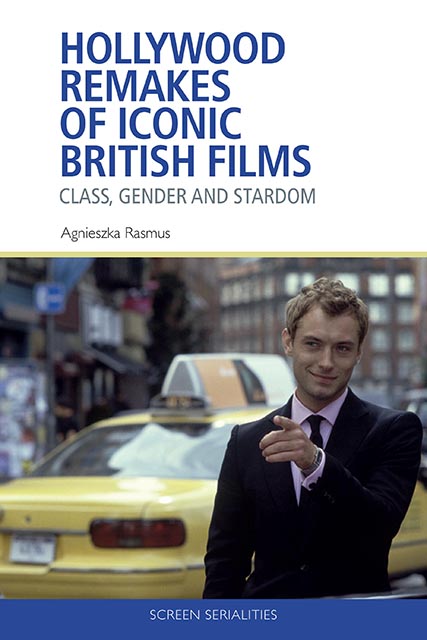Book contents
- Frontmatter
- Contents
- List of Figures
- Acknowledgements
- Preface
- Chapter 1 Remaking Iconic British Films of the 1960s and 1970s
- Chapter 2 From British Working-Class Gangsters to Hollywood Heroes: The Italian Job and Get Carter
- Chapter 3 Gender, Stars and Class Wars: Alfie and Sleuth
- Chapter 4 From Devilish Masters to Evil Dames: Bedazzled and The Wicker Man
- Chapter 5 Remaking, Cultural Exchange and Personal Legacy: The Limey
- References
- Index
Chapter 4 - From Devilish Masters to Evil Dames: Bedazzled and The Wicker Man
Published online by Cambridge University Press: 10 August 2023
- Frontmatter
- Contents
- List of Figures
- Acknowledgements
- Preface
- Chapter 1 Remaking Iconic British Films of the 1960s and 1970s
- Chapter 2 From British Working-Class Gangsters to Hollywood Heroes: The Italian Job and Get Carter
- Chapter 3 Gender, Stars and Class Wars: Alfie and Sleuth
- Chapter 4 From Devilish Masters to Evil Dames: Bedazzled and The Wicker Man
- Chapter 5 Remaking, Cultural Exchange and Personal Legacy: The Limey
- References
- Index
Summary
Hollywood remakes featuring women in previously male roles have become quite prominent in recent years. The all-female Ghostbusters reboot (Feigs, 2016) attracted both a lot of attention and misogynistic hostility from the original's fan base (see Perkins 2020). The all-female requel Ocean's 8 (Ross, 2018) escaped such harsh reactions, as it positioned itself somewhere between a remake and a sequel with its focus on generic and genetic continuation, while remaining safely on the fringes of the original franchise (see Forrest 2020). Another classic comedy, Dirty Rotten Scoundrels (Oz, 1988), was remade as The Hustle (Addison, 2019), also to mixed reviews, but showing that the trend is here to stay. This chapter examines two examples of Hollywood remakes, Bedazzled (Ramis, 2000) and The Wicker Man (LaBute, 2006), which also transform previously male roles into modern female equivalents, before such practice became ‘an industrial and political strategy for Hollywood at the end of the twenty-first century's second decade’ (Perkins 2020: 158). Unlike the films mentioned above, here, however, the gender swapping applies to secondary characters only as the male protagonist's journey still dominates the plot.
As I will go on to show, although pertaining to different genres, both originals are now bound together retrospectively through the property of their gender-switching remakes and similar thematic concerns – such as the subject of the supernatural, counterculture and the idea of class difference. I will look first at Stanley Donen's satirical comedy, Bedazzled (1967), which is a loose update of the Faust legend, set in 1960s London, co-acted by the comedy duo Peter Cook and Dudley Moore and written by the former. Moore plays a working-class hero who gives away his soul to Cook's Devil in exchange for seven wishes to help him win over the woman he loves, with each wish representing a different fantasy and an opportunity to satirise an aspect of the 1960s scene. The remake by Harold Ramis (2000) shares its predecessor's loose episodic structure, but instead of taking on contemporary American society, it keeps more with the path of a conventional Hollywood romantic comedy. To that effect, the hero, played by Brendan Fraser, is now a socially awkward office worker tempted and misled by the provocative Elizabeth Hurley as the Devil.
- Type
- Chapter
- Information
- Hollywood Remakes of Iconic British FilmsClass, Gender and Stardom, pp. 99 - 132Publisher: Edinburgh University PressPrint publication year: 2022



